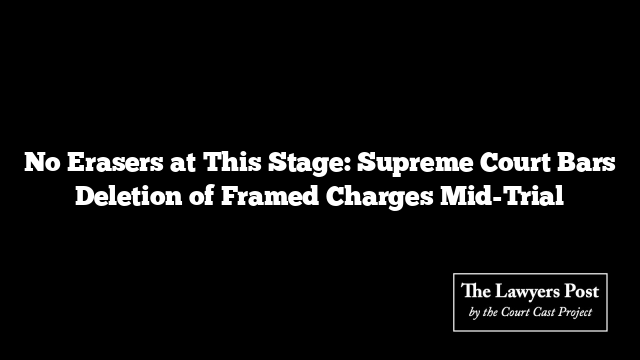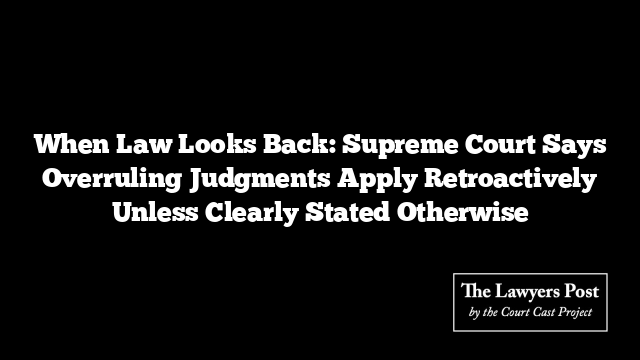In a firm stand against procedural shortcuts, the Supreme Court has ruled that once charges are framed during a criminal trial, they cannot be erased or undone by invoking Section 216 of the Criminal Procedure Code—or its corresponding provision, Section 239 of the Bharatiya Nyaya Sanhita (BNSS).
The bench, speaking through a judgment penned by Justice JB Pardiwala and joined by Justice Manoj Misra, made it crystal clear: Section 216 is a tool for adjusting or adding charges—not for scrubbing them out. The Court emphasized that the only destinations after framing of charges are either conviction or acquittal. There’s no hidden exit for deleting charges mid-course.
“If the legislature intended courts to delete charges once framed, it would have said so—clearly and without ambiguity,” the bench noted. “The trial process must follow through to its natural legal end. There are no off-ramps.”
This judgment surfaced during two criminal appeals involving the NDPS Act, where trial courts had sidestepped their obligation to fully adjudicate charges. Instead of either convicting or acquitting the accused, the trial courts simply transferred the matter to a Magistrate under the Drugs & Cosmetics Act—effectively deleting the NDPS charges without resolution.
The Department of Revenue Intelligence, unhappy with the High Court’s endorsement of that maneuver, brought the matter to the Supreme Court.
The apex court wasn’t having it. It ruled that both the trial courts and the High Court misstepped. The Supreme Court flatly stated that deleting charges under the guise of a Section 216 application is a misuse of procedure.
Citing the Allahabad High Court’s 2023 ruling in Dev Narain v. State of U.P., the bench reaffirmed that once charges are framed, the judicial track is set: only a verdict—acquittal or conviction—can bring the matter to rest.
With the deletion of charges deemed impermissible, the Court directed the accused in both cases to be tried under the NDPS Act by the appropriate Special Judge.





